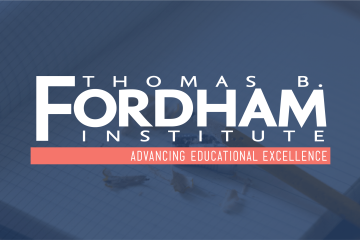NOTE: The Thomas B. Fordham Institute occasionally publishes guest commentaries on its blogs. The views expressed by guest authors do not necessarily reflect those of Fordham.
Students awarded EdChoice scholarships benefit from Ohio’s regulatory and accountability system for school-choice programs.
Ohioans rely on statutory and administrative codes to ensure that all schools meet basic quality standards for students.
Accountability is a fundamental issue in a lawsuit filed against the state over the constitutionality of the EdChoice Scholarship Program. The suit alleges nonpublic school providers are not accountable for the state dollars they receive. This assertion is inaccurate. School providers are accountable both to the state and to the families of scholarship recipients.
EdChoice providers are schools chartered by the State Board of Education to—at the very least—assure a high-quality general education. Schools must either complete the chartering process directly with the state, or be accredited by associations in which their standards are reviewed by the State Superintendent’s Advisory Committee on Chartered Nonpublic Schools and approved by the state.
The state’s operating standards applicable for EdChoice providers are markedly similar to those of public schools. Other required statutory and administrative code provisions are state mandated assessments, including the third grade reading guarantee and graduation tests, course content requirements, health and safety standards, requisite hours of instruction, anti-discrimination provisions, and mandatory employee background checks.
Additionally, EdChoice providers follow a rigorous application process with the Ohio Department of Education, which uses records to monitor compliance with a host of records related to school buildings, staff, volunteers, admission policies, fire inspections, and food services licenses. Schools are required to have these records available for compliance reviews, announced or unannounced, by state employees.
But it’s not only compliance that makes private-school scholarship programs accountable. EdChoice and other scholarship programs give parents a meaningful way to hold schools accountable for their children’s education. If parents are dissatisfied, they are empowered to leave—along with their funding.
Ultimately, EdChoice providers are most directly accountable to the students and parents for whom they serve.
But let’s remember these providers are private schools that garner public dollars—not by default—but only when parents independently choose to enroll. Moreover, scholarship funds cover just a portion of the total cost to educate students. As such, they should not be regulated exactly as public schools are. After all, for parents to have a diversity of school-choice options, nonpublic schools should not be mirror images of public schools.
Larry Keough is the associate director for education at the Catholic Conference of Ohio and legislative advocate for Catholic schools.




